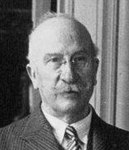
Back الانتخابات الإسبانية العامة 1933 Arabic Eleccions generals espanyoles de 1933 Catalan Elecciones generales de España de 1933 Spanish 1933ko Espainiako hauteskunde orokorrak Basque Élections générales espagnoles de 1933 French Eleccións xerais de España de 1933 Galician Spaanse parlementsverkiezingen 1933 Dutch Wybory parlamentarne w Hiszpanii w 1933 roku Polish Парламентские выборы в Испании (1933) Russian 1933 Spanish general election SIMPLE
| |||||||||||||||||||||||||||||||||||||||||||||||||||||||||||||||||||||
All 473 seats of the Congress of Deputies 237 seats needed for a majority | |||||||||||||||||||||||||||||||||||||||||||||||||||||||||||||||||||||
|---|---|---|---|---|---|---|---|---|---|---|---|---|---|---|---|---|---|---|---|---|---|---|---|---|---|---|---|---|---|---|---|---|---|---|---|---|---|---|---|---|---|---|---|---|---|---|---|---|---|---|---|---|---|---|---|---|---|---|---|---|---|---|---|---|---|---|---|---|---|
| Turnout | 67.31% | ||||||||||||||||||||||||||||||||||||||||||||||||||||||||||||||||||||
| |||||||||||||||||||||||||||||||||||||||||||||||||||||||||||||||||||||
 Areas of most support: the right (dark blue), the centre-right (light blue), the centre (green) and the left (red). | |||||||||||||||||||||||||||||||||||||||||||||||||||||||||||||||||||||
| |||||||||||||||||||||||||||||||||||||||||||||||||||||||||||||||||||||
Elections to Spain's legislature, the Cortes Generales, were held on 19 November 1933 for all 473 seats in the unicameral Cortes of the Second Spanish Republic. Since the previous elections of 1931, a new constitution had been ratified, and the franchise extended to more than six million women. The governing Republican-Socialist coalition had fallen apart, with the Radical Republican Party beginning to support a newly united political right.
The right formed an electoral coalition, as was favoured by the new electoral system enacted earlier in the year. The Spanish Socialist Workers' Party (Partido Socialista Obrero Español, or PSOE) won only 59 seats. The newly formed Catholic conservative Spanish Confederation of the Autonomous Right (Confederación Española de Derechas Autónomas or CEDA) gained 115 seats and the Radicals 102. The right capitalised on disenchantment with the government among Catholics and other conservatives. CEDA campaigned on reversing the reforms that had been made under the Republic, and on freeing political prisoners. Anarchists favoured abstention from the vote. These factors helped the election to result in significant victory for the right over the left.
Cite error: There are <ref group=nb> tags on this page, but the references will not show without a {{reflist|group=nb}} template (see the help page).
© MMXXIII Rich X Search. We shall prevail. All rights reserved. Rich X Search





